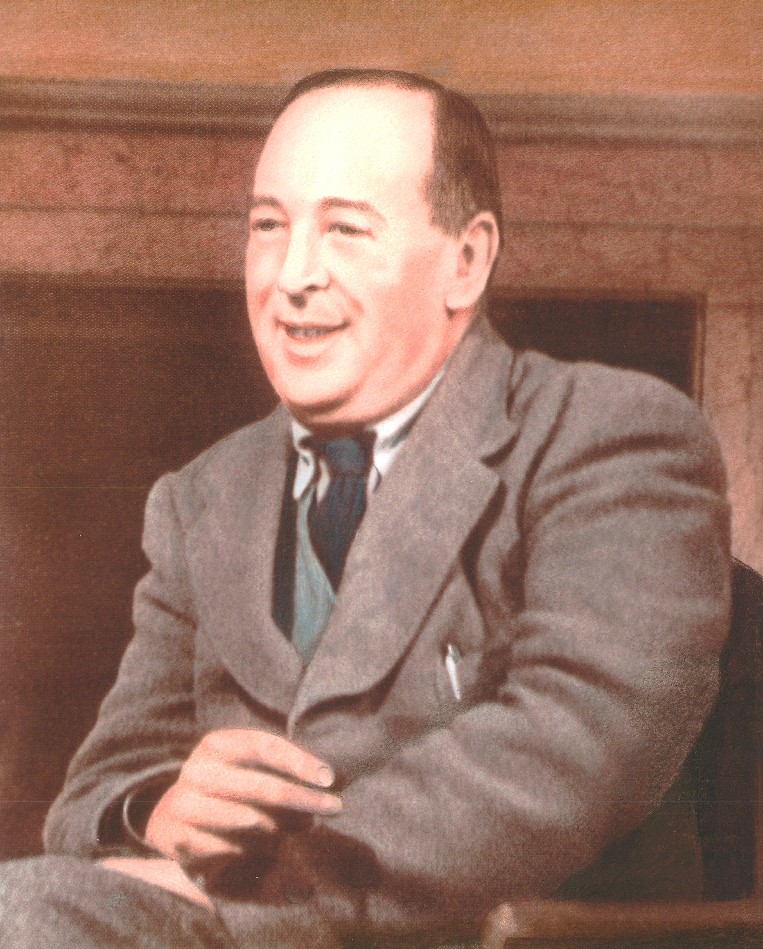I’m constantly re-reading C. S. Lewis books. It had been a while since I read his Reflections on the Psalms, so I took it down from the shelf and gave it another go. This time, as is always the case, something stood out to me that didn’t, to the same extent, in my previous reading. The chapter title “Connivance” leaped off the pages into my world—at least, the world I constantly experience around me, particularly with respect to government and politics—and poignantly described so much of what I see happening in the culture, both political and in the broader sense of American culture.
There are many psalms, Lewis points out, that warn believers against conniving, or partnering, with evil. “I am concerned here,” Lewis says, “only with the problem that appears in our individual and private lives. How ought we to behave in the presence of very bad people? I will limit this by changing ‘very bad people’ to ‘very bad people who are powerful, prosperous, and impenitent.'” The issue is with those who seek to ingratiate themselves, i.e., to curry favor with someone powerful for personal benefit. There are always “toadies” and those who want to be “on the band-wagon,” if they perceive that they will rise in stature by associating with the powerful person.
Lewis then shifts to a young man he once knew who had been a strict socialist at Oxford. This man earnestly followed the typical socialist line: the State should run everything; private enterprise was the greatest of all evils. Lewis recounts that the young man after his tenure at Oxford had become a teacher. Ten years into that profession, he came to see Lewis. Surprisingly, he now had reversed all of his views. Seeing State interference in schools and being exasperated by the Ministry of Education, employees of which he deemed “a set of ignorant meddlers armed with insufferable powers to pester, hamper, and interrupt the work of real, practical teachers who knew the subjects they taught,” had been more than enough to convince him of the evils of the system. “The real point of the story,” Lewis relates, “nearly took my breath away. Thinking thus, he had come to see whether I had any influence which might help him to get a job in the Ministry of Education.” He now wanted to be part of that system because that’s where the power seemed to be.
Lewis concluded, “Here is the perfect band-wagoner. Immediately on the decision ‘This is a revolting tyranny,’ follows the question ‘How can I as quickly as possible cease to be one of the victims and become one of the tyrants?'” Lewis concedes that this example was rather crude and unabashed, and that most attempts at band-wagoning are more subtle. “Many people have a very strong desire to meet celebrated or ‘important’ people, including those whom they disapprove, from curiosity or vanity. It gives them something to talk or even (anyone may produce a book of reminiscences) to write about. It is felt to confer distinction if the great, though odious, man recognizes you in the street.” The desire itself might not necessarily be a serious defect, according to Lewis, but he does summarize thusly: “I am inclined to think a Christian would be wise to avoid, where he decently can, any meeting with people who are bullies, lascivious, cruel, dishonest, spiteful, and so forth.”
Lewis, though, wants to make sure his readers don’t misunderstand where he is coming from. He adds,
Not because we are “too good” for them. In a sense because we are not good enough. We are not good enough to cope with all the temptations, nor clever enough to cope with all the problems, which an evening spent in such society produces. The temptation is to condone, to connive at; by our words, looks, and laughter, to “consent.” …
What is one to do? For on the one hand, quite certainly, there is a degree of unprotesting participation in such talk which is very bad. We are strengthening the hands of the enemy. We are encouraging him to believe that “those Christians,” once you get them off their guard and round a dinner table, really think and feel exactly as he does.
That’s particularly atrocious because “by implication we are denying our Master; behaving as if we “knew not the Man.” I think about Peter denying Jesus and the abominable nature of that betrayal. We must avoid anything similar. The other part of the problem, though, is that we may come across as utterly self-righteous: “On the other hand is one to show that, like Queen Victoria, one is ‘not amused’? Is one to be contentious, interrupting the flow of conversation at every moment with ‘I don’t agree, I don’t agree'”?
As Lewis wraps up his thoughts in this chapter, he returns to the wisdom of the Psalms:
What makes this contact with wicked people so difficult is that to handle the situation successfully requires not merely good intentions, even with humility and courage thrown in; it may call for social and even intellectual talents which God has not given us. It is therefore not self-righteousness but mere prudence to avoid it when we can.
The Psalmists were not quite wrong when they described the good man as avoiding “the seat of the scornful” and fearing to consort with the ungodly lest he should “eat of” (shall we say, laugh at, admire, approve, justify?) “such things as please them.” As usual in their attitude, with all its dangers, there is a core of very good sense. “Lead us not into temptation” often means, among other things, “Deny me those gratifying invitations, those highly interesting contacts, that participation in the brilliant movements of our age, which I so often, at such risk, desire.”
The quandary Lewis discusses here is no less present in our day. Are we too eager to be part of something that we think will raise our stature in the world? And not just in the world. Are we too eager to do whatever is “necessary” to become a “star” in the church? Do we really have the maturity to handle that? Do we seek to attach ourselves to some personality or movement because we believe it will enhance our lives? Perhaps we should then ask, “At the expense of what?”
Micah 6:8 keeps returning to my mind as I witness the cults of personality and the mad rush of some individuals to be part of “something big.” Micah simply reminds us, “He has shown you, O man, what is good. And what does the Lord require of you but to act justly, to love mercy, and to walk humbly with your God?”


